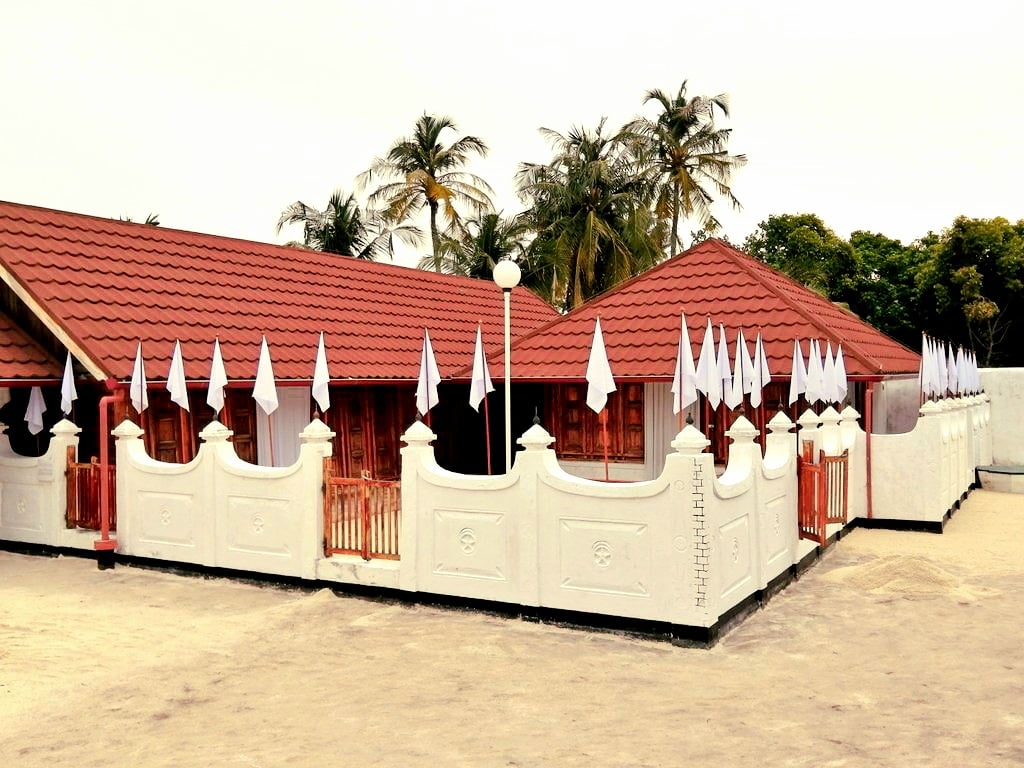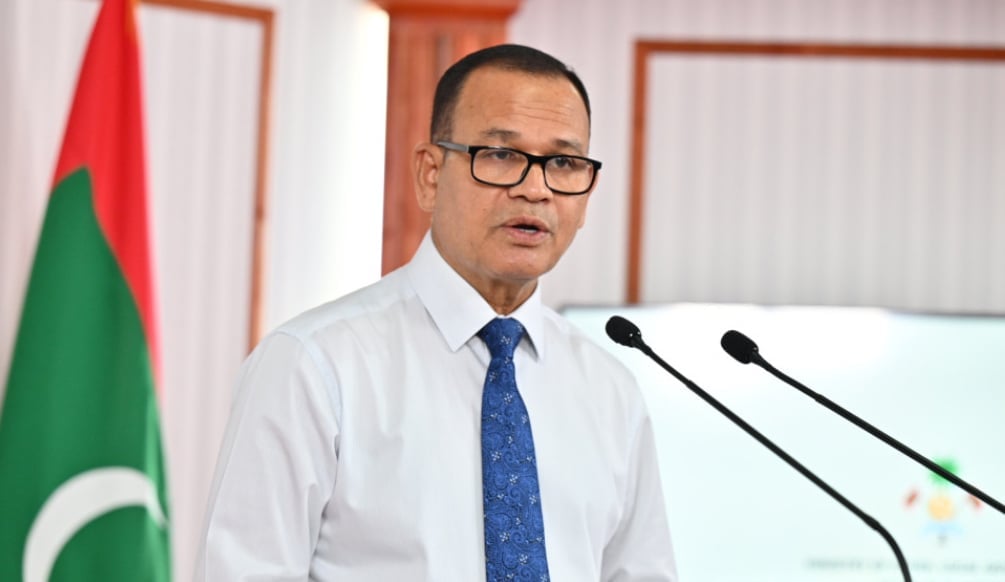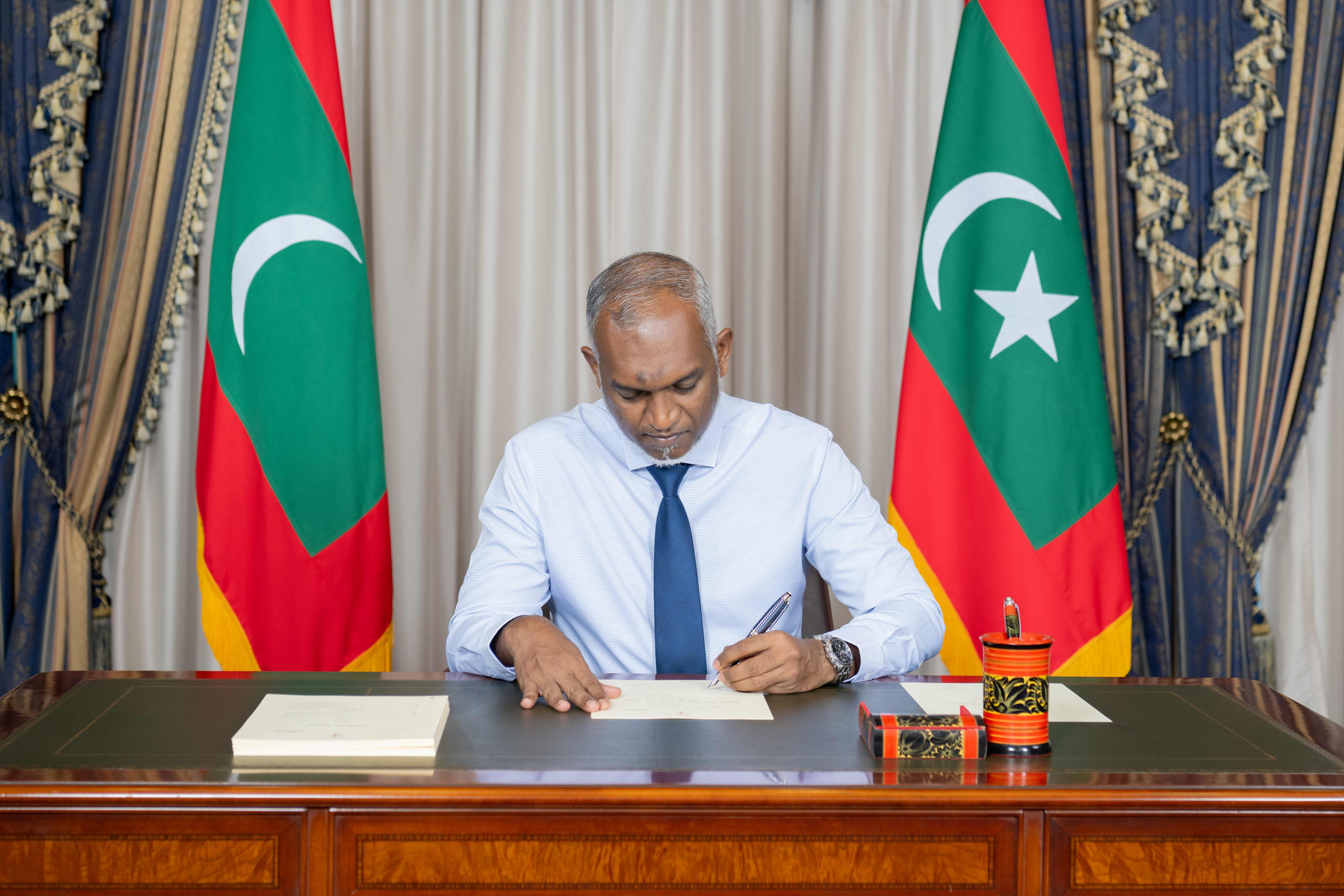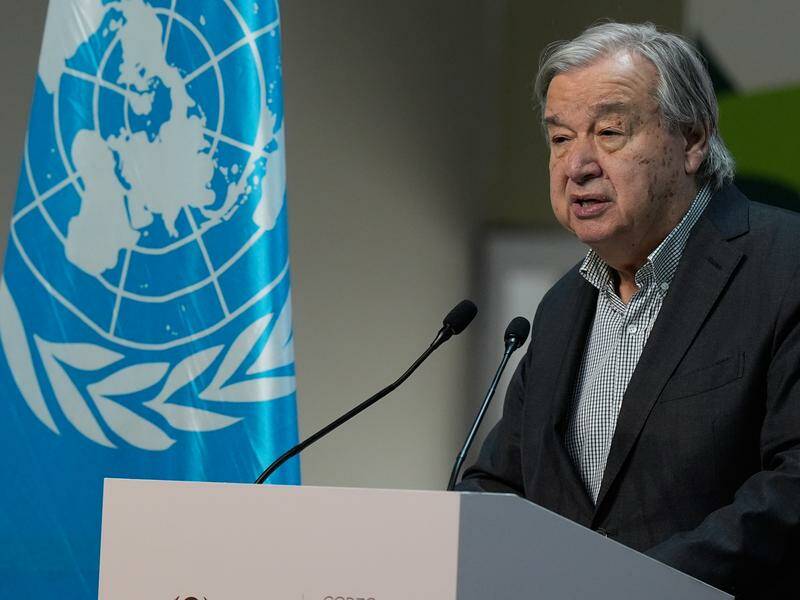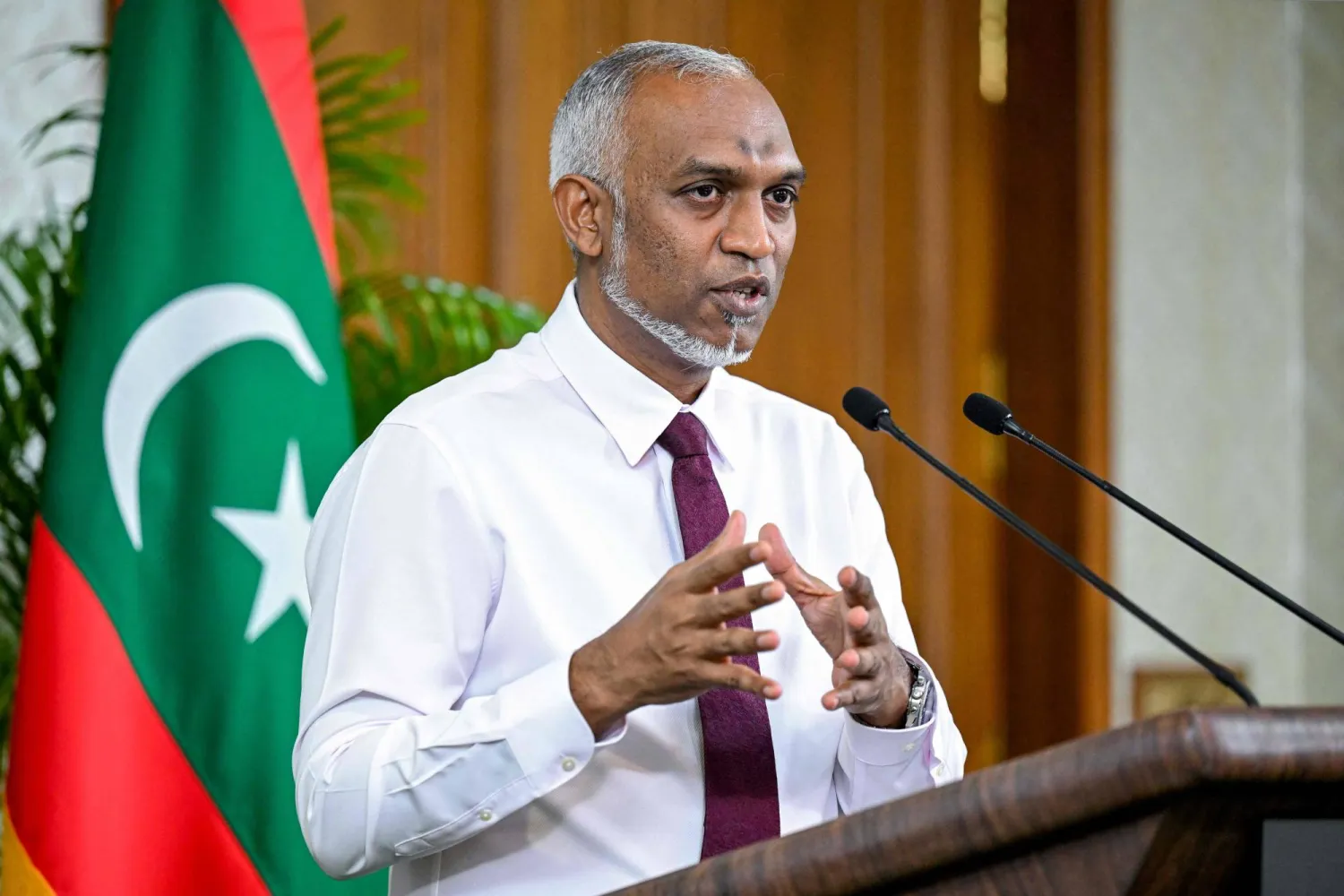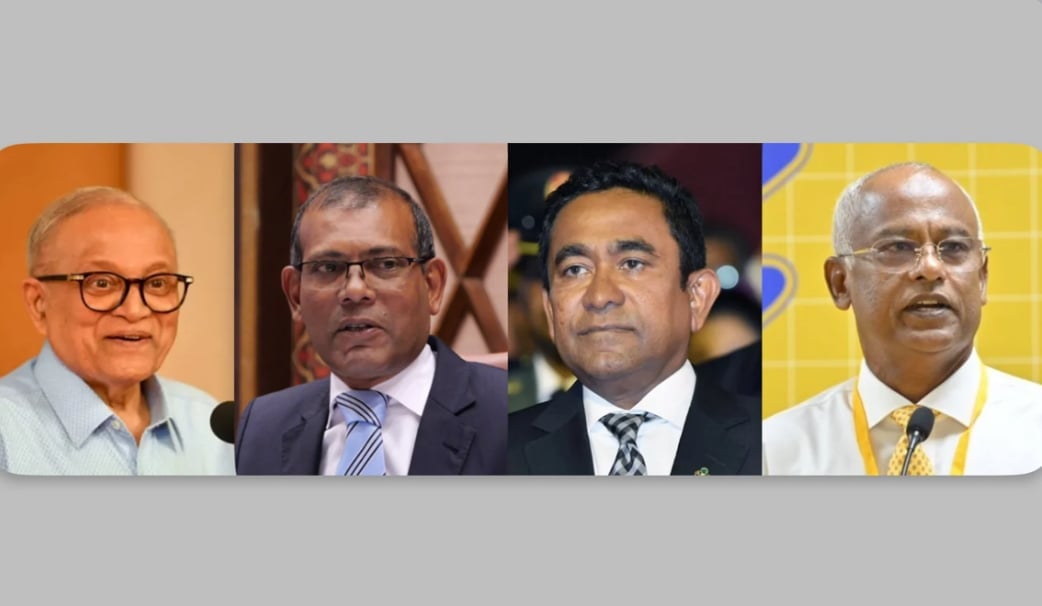(This is a series of articles, rewritten and translated from the 'Dhivehi Thaareekh' book compiled by a committee appointed by Sultan Muhammad Imaduddin VI in 1902 AD / 1320 AH to write the history of the Maldives in Dhivehi language.)
After killing An'diri An'dirin and defeating the Portuguese on Rabi' al-Awwal 981 AH (1 July 1573 AD), Bodu Thakurufaanu ascended to the throne. The Portuguese invaded and governed for 15 years and 6 months.
Sultan Al-Ghazi Muhammad (Thakurufaanu Al-A'zam) was conferred the royal title of Siri Savaadheetha Mahaaradhun. This king constructed the royal palace, consolidated state affairs, and established ruling conventions and traditions. He made his full brother, Hassan Khatheeb Thakurufaanu, a partner in the throne and bestowed upon him the title of Rannaban'deyri Kilegefaanu. In addition, he bestowed the title of Dhorhimeyna Thakurufaanu to Ali Haji and appointed him Chief Minister. He also conferred the title Velaanaa upon Hassan Haji.
When this king ascended the throne, the Maldives lacked Islamic scholars. The Portuguese captured the Maldives roughly 30 years after the knowledge spread by a scholar named Al-Faqih Sulaiman al-Madani ibn Muhammad ibn Isa at-Tarili al-Yamani, as well as his disciples and their students, had passed away.
When the Portuguese invaded the Maldives, there were no scholars of the Islamic Shariah. The disaster struck the Maldives at a time when the country was intellectually vulnerable. When Allah desires to impose a hardship or misfortune upon a community, He eliminates the scholars from among them.
Muhammad Thakurufaanu lacked a scholar in the Maldives, and he required one for both worldly and religious matters. A Maldivian scholar who lived in Hadhramaut came to the Maldives while he was concerned about this. This scholar was Sheikh Muhammad Jamaluddin. He had traveled to Arabia to acquire Islamic knowledge while Sultan Hassan Shirazi, the son of Sultan Kalhu Muhammad, was in power. Sultan Hassan Shirazi ruled from 1529 until 1549 CE.
Sheikh Muhammad Jamaluddin traveled in the Hijaz region and acquired knowledge from various scholars in Hadhramaut. When he arrived in the Maldives, Muhammad Thakurufaanu was overjoyed and showed him great respect. He offered him numerous gifts and asked him to stay in his court. However, due to his asceticism and piety, he refused and requested to live on a remote island. He traveled to Vadhoo, Huvadhoo Atoll, with permission from the king.
When he came to Vaadhoo, the island's Chief, Mohamed Fadiyaiy Thakurufaanu, treated him with great respect and built him a comfortable home. During his time on the island, he started teaching Ali Naib Thakurufaanu, the son of Fadiyaiy Thakurufaanu. Subsequently, students from various regions started coming to acquire knowledge from him.
Then, while educating students and worshiping the Almighty God on that island, Sheikh Mohamed Jamaaluddin (Vaadhoo Dhanna Kaleygefaanu) passed away. Abu Bakuru Fan'diyaaru Thakurufaanu and Addu Bodu Fan'diyaaru Thakurufaanu were two of his most renowned students.
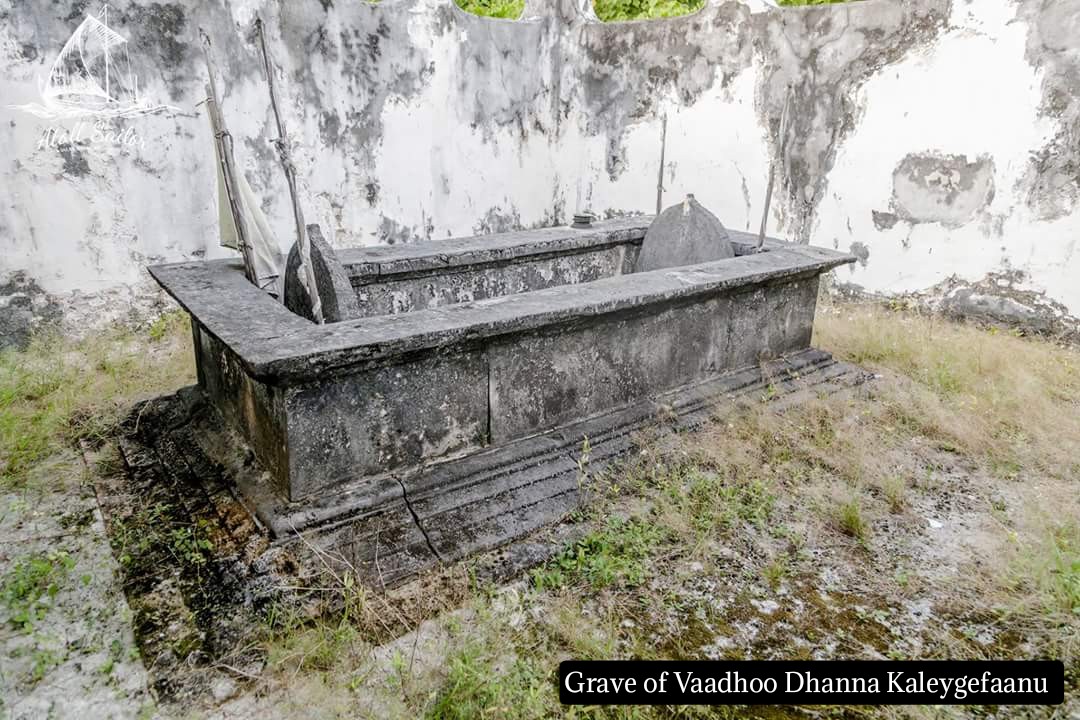
Then, on the first day of Ramadan in the year 993 AH, Sultan Mohamed of Utheemu (Al-Ghazi Mohamed Bodu Thakurufaanu) departed from this life, having ruled justly and with steadfastness in both religious and worldly matters. This corresponds to August 27, 1585 CE.
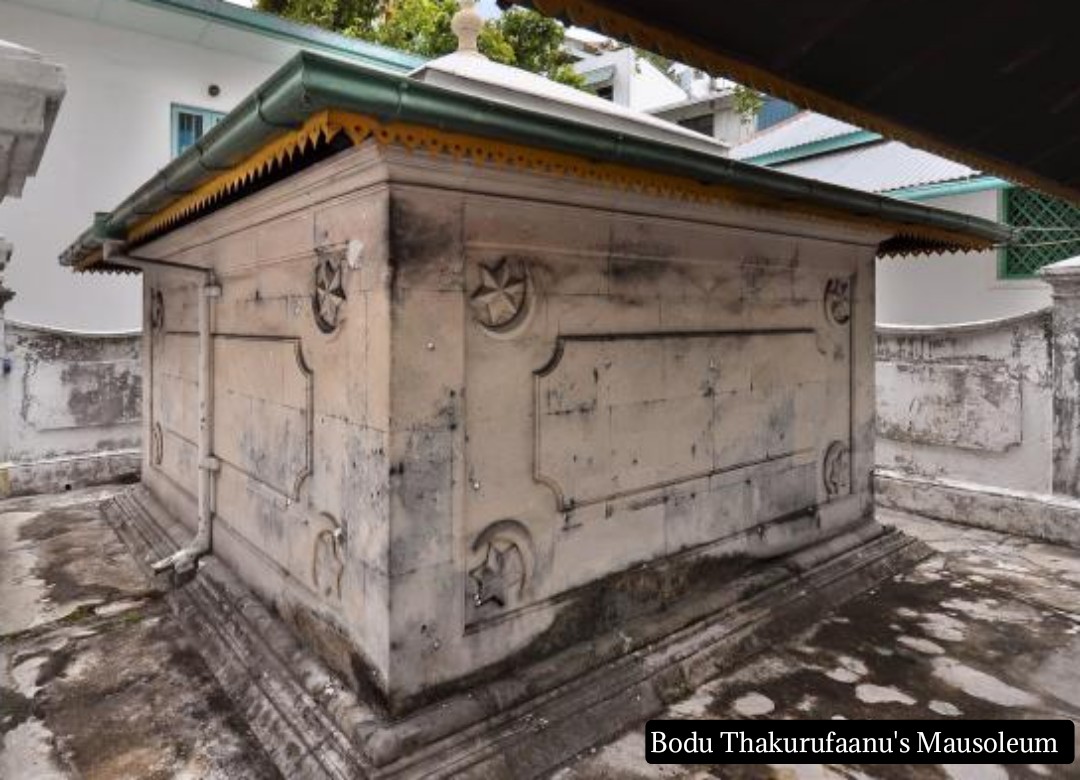
This king was wise, just, compassionate toward his people, and was very religious. For the first time in Maldivian history, he organized the military and set salaries for them in the form of cowry shells and coir. In addition, he gave the soldiers 'feyli,' a lower garment worn as a uniform, three times a year and rice twice a month.
During this king's reign, the people were prosperous and well-off. As a result of the establishment of security and harmony in society, interpersonal violence has disappeared. On the day this king passed away, as per his covenant, his son named Ibrahim was sworn in and ascended to the throne. Muhammad Thakurufaanu Al-A'zam ruled for a period of twelve years and six months.
After killing An'diri An'dirin and defeating the Portuguese on Rabi' al-Awwal 981 AH (1 July 1573 AD), Bodu Thakurufaanu ascended to the throne. The Portuguese invaded and governed for 15 years and 6 months.
Sultan Al-Ghazi Muhammad (Thakurufaanu Al-A'zam) was conferred the royal title of Siri Savaadheetha Mahaaradhun. This king constructed the royal palace, consolidated state affairs, and established ruling conventions and traditions. He made his full brother, Hassan Khatheeb Thakurufaanu, a partner in the throne and bestowed upon him the title of Rannaban'deyri Kilegefaanu. In addition, he bestowed the title of Dhorhimeyna Thakurufaanu to Ali Haji and appointed him Chief Minister. He also conferred the title Velaanaa upon Hassan Haji.
When this king ascended the throne, the Maldives lacked Islamic scholars. The Portuguese captured the Maldives roughly 30 years after the knowledge spread by a scholar named Al-Faqih Sulaiman al-Madani ibn Muhammad ibn Isa at-Tarili al-Yamani, as well as his disciples and their students, had passed away.
When the Portuguese invaded the Maldives, there were no scholars of the Islamic Shariah. The disaster struck the Maldives at a time when the country was intellectually vulnerable. When Allah desires to impose a hardship or misfortune upon a community, He eliminates the scholars from among them.
Muhammad Thakurufaanu lacked a scholar in the Maldives, and he required one for both worldly and religious matters. A Maldivian scholar who lived in Hadhramaut came to the Maldives while he was concerned about this. This scholar was Sheikh Muhammad Jamaluddin. He had traveled to Arabia to acquire Islamic knowledge while Sultan Hassan Shirazi, the son of Sultan Kalhu Muhammad, was in power. Sultan Hassan Shirazi ruled from 1529 until 1549 CE.
Sheikh Muhammad Jamaluddin traveled in the Hijaz region and acquired knowledge from various scholars in Hadhramaut. When he arrived in the Maldives, Muhammad Thakurufaanu was overjoyed and showed him great respect. He offered him numerous gifts and asked him to stay in his court. However, due to his asceticism and piety, he refused and requested to live on a remote island. He traveled to Vadhoo, Huvadhoo Atoll, with permission from the king.
When he came to Vaadhoo, the island's Chief, Mohamed Fadiyaiy Thakurufaanu, treated him with great respect and built him a comfortable home. During his time on the island, he started teaching Ali Naib Thakurufaanu, the son of Fadiyaiy Thakurufaanu. Subsequently, students from various regions started coming to acquire knowledge from him.
Then, while educating students and worshiping the Almighty God on that island, Sheikh Mohamed Jamaaluddin (Vaadhoo Dhanna Kaleygefaanu) passed away. Abu Bakuru Fan'diyaaru Thakurufaanu and Addu Bodu Fan'diyaaru Thakurufaanu were two of his most renowned students.

Then, on the first day of Ramadan in the year 993 AH, Sultan Mohamed of Utheemu (Al-Ghazi Mohamed Bodu Thakurufaanu) departed from this life, having ruled justly and with steadfastness in both religious and worldly matters. This corresponds to August 27, 1585 CE.

This king was wise, just, compassionate toward his people, and was very religious. For the first time in Maldivian history, he organized the military and set salaries for them in the form of cowry shells and coir. In addition, he gave the soldiers 'feyli,' a lower garment worn as a uniform, three times a year and rice twice a month.
During this king's reign, the people were prosperous and well-off. As a result of the establishment of security and harmony in society, interpersonal violence has disappeared. On the day this king passed away, as per his covenant, his son named Ibrahim was sworn in and ascended to the throne. Muhammad Thakurufaanu Al-A'zam ruled for a period of twelve years and six months.





